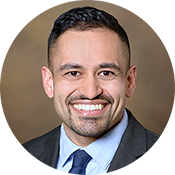Navigating the Virtual Cardiology Fellowship Interview Season
As programs turn to another year of online interviews, fellows can use these tips to increase their chances of securing a spot.

In the era of COVID-19, general cardiology and subspecialty fellowship programs have moved to a virtual model for applicant interviews. While I applied to general cardiology fellowship in more traditional times, I have now gained experience both virtually interviewing others as a chief resident and virtually applying to interventional cardiology programs. The endpoint might be the same—securing a spot in the program of your choice—but here are my key tips for helping guide applicants embarking on this new journey.
Before the Interview
You may think that you’re golden simply by securing the interview, but there are still several steps you should take to ensure an optimal experience, and a good impression!
Do an audiovisual check: Fellowship programs are using a variety of online tools to enhance their virtual application season. Make sure you’re familiar with Zoom, Microsoft Teams, Webex, and Google Hangouts, and check that your microphone, camera, and speakers all work prior to your interview date. Identify a quiet, well-lit area to conduct your interviews. It may even be a good idea to do a couple of test runs. Also, ask if your home institution has resources either within the department or through the library to allow for applicants to have a dedicated space for interviews or any other tools that might assist you.
Research the programs: Especially because you may not be able to visit in person, it is crucial to read about the program and its faculty prior to the interview. The cardiology community, while expansive, is still small, and it is important to realize that you will be speaking with a connected network of experts within the field. As such, ensure that you know some key points about the program, the reasons for your interest (whether personal, clinical, or research-oriented), and your application/research portfolio. Programs are interested in the novel research that applicants have been involved in and will want to discuss your role and knowledge of the material.
Interview Day
The largest difference I felt between my interviews for internal medicine and general cardiology fellowship, as well as subsequent subspeciality programs, was how well the conversations flowed. In the latter, the interview seemed to be more about getting to know each other as people and identifying future goals for my career and scholarly pursuits, as opposed to what I had accomplished and done in the past.
Be well rested: On most interview days, you will be speaking with multiple faculty members, both in the morning and afternoon. Some programs on Eastern Time may have later sessions for applicants on Pacific Time, so inquire about this if applicable. Either way, get a good night’s sleep the night before to appear fresh and think clearly. And make sure to triple check the start time of the interview beforehand.
Identify potential mentors: One of the most important aspects of fellowship is finding mentors within the field of cardiology. As you go through the interview day, try to identify mentors who may help guide you to reach your goals if you were to attend that program. Better yet, do a little bit of research ahead of time and inquire if someone who piques your interest might be available for a meeting. If they are not available during your interview, see if the program coordinator can schedule something for you another time.
Talk about research: Many programs advertise the ongoing research of their faculty on their respective websites. Be sure to bring up specific projects that interest you, as this can be a starting point for conversation and a way for both the faculty and you to better get to know each other. When speaking with current fellows, discuss the process for being involved in research and how the program is structured to allow for longitudinal projects throughout the fellowship. Also ask how fellows have adapted to the changed environment regarding virtual conferences and how the program has supported them in allowing for virtual participation.
Understand clinical rotations: All programs will adhere to the minimum COCATS requirements for fellowship training. Familiarize yourself with COCATS levels prior to starting fellowship, but even before starting the interview season. Take time to understand how the rotations are structured and how elective time is distributed, especially if you are looking to obtain COCATS Level II certification in multiple specialties or if you are considering COCATS Level III certification in echocardiography.
Expect to dine virtually: To maintain a semblance of normalcy and give applicants a feel for the social culture of programs, many are holding virtual dinners or happy hours. While these are not necessarily a part of the formal interview process or even required, they are a crucial opportunity for you as an applicant to learn about the program from current fellows. You will be able to have open conversations without the program leadership listening in. I advise that you take the time to understand what life as a fellow is truly like. Some questions you might ask are:
- How livable is your city on a fellow stipend?
- How are vacations scheduled?
- Are the fellows willing and able to switch calls if needed?
- For those with spouses and children, what are the job opportunities within that city and how are the childcare options?
- How are the on-call facilities and meals provided?
- Are faculty and fellows collegial, and is there open communication for questions while on service?
- What are average procedural volumes for cardiac catheterization, echo, nuclear, and CT/MRI?
- Is there program support for fellows in pursuit of subspeciality fellowships?
- How are mentorship opportunities fostered?
- Are there ample research opportunities?
- Are educational funds available for conferences and scholarly pursuits?
After the Interview
As the application and interview season can stretch from July to early November, it can be helpful to write down your impressions regarding each program shortly after completing the interview. This will allow you to remember important points while forming a rank list.
Ask yourself the following questions to help make your decision:
- Do I fit into the culture of program?
- Is program leadership attentive to the needs of fellows?
- Are there mentors who can nurture my unique interests?
- Are there research opportunities that appeal to me?
- Will my family and I enjoy living in this city?
- Does the program provide me with the tools and resources I require to help me achieve my personal and professional goals?
Although this is not an exhaustive list for how to approach fellowship interviews, I hope that this framework may provide some insight into some of the issues that I personally encountered. Best of luck! And remember, you are interviewing for a position you have dreamed of achieving—enjoy the journey, even if it is virtual!
*I’d like to thank Srini Mukundan, MD, for his contributions to this article.
Kris Kumar, DO, is a third-year general cardiology fellow at Oregon Health and Science University. Prior to his journey in…
Read Full Bio




Comments